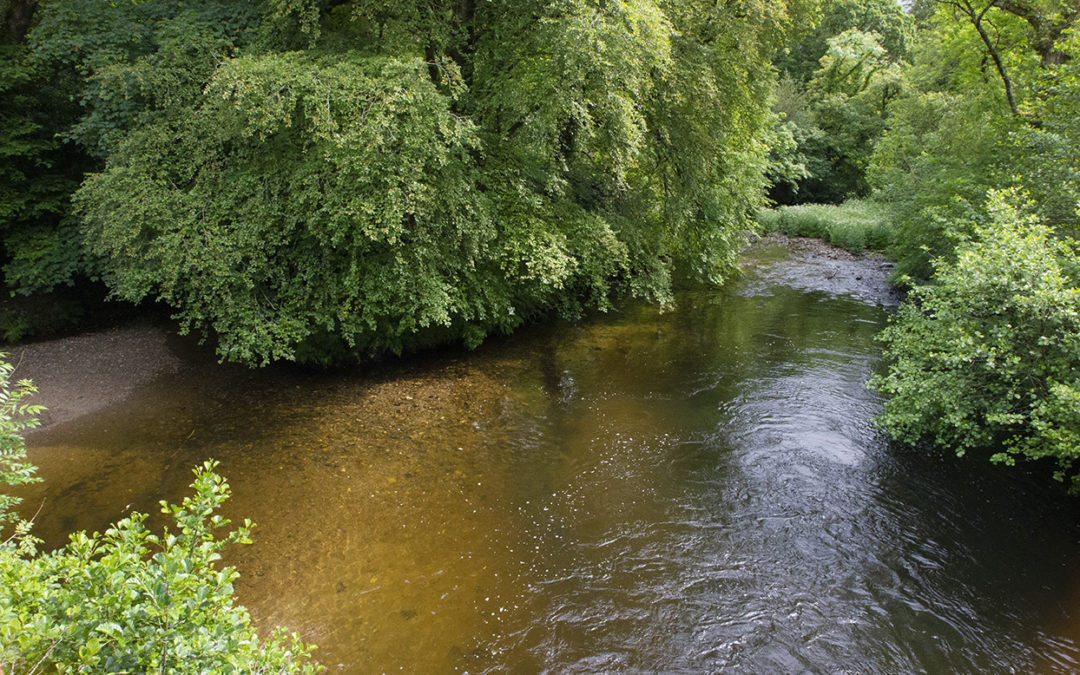LIKE many people looking for some light during the COVID-19 lockdown, we have loved seeing footage of dolphins swimming in rivers and goats making trips into town.
We have also been sharing photos and films of glimpses of Springtime nature either from our gardens or on our daily walks, and we have put in place various resources to provide some light-hearted environmental entertain at home.
Yet behind this, our work to protect and restore the Westcountry’s waterways continues albeit in new circumstances.
Although several of our staff from across various departments are currently furloughed this is under weekly review, and our team continues to deliver projects in new ways.
For example, our monitoring staff is focusing on collecting data remotely from equipment in the field, we are holding project partner meetings online, and our farm advisors are calling farmers to chat about projects and as a means to offer support.
On occasion, some staff may need to carry out field work if animal or plant welfare is jeopardised; to maintain equipment installed in rivers; or to conduct survey work under a written agreement by the landlord/farmer and as outlined by the Government’s CIEEM letter for ecologists and environmental professionals.
Every external work situation is thoroughly considered and, where staff needs to conduct fieldwork, they will carry a WRT exceptional travel letter.
As a charity working to support our natural surroundings, we have always tried to keep our impact on the environment to a minimum yet adapting to an evolving situation is still a challenge.
There may be instances where, although many are finding solace in nature, others may flout the rules and we could see an increase in issues such as fly-tipping or river pollution.
One way we are keeping an eye on our rivers is through our Citizen Science River Keepers who are sharing observational photos and info from their allowed daily walks along local streams and rivers.
We also have new projects in the pipeline which will enable people to take part from home such as our Preventing Plastic Pollution and Plymouth River Keepers projects, while our upcoming Upstream Thinking 3 project will connect with landowners to create positive water quality and biodiversity outcomes. More to follow soon on those.
Some of what we do is delivered via time-sensitive funded projects, which still need to achieve their outcomes even if in adapted forms. As none of us may yet know how our near or distant future will look, we are working in a way that will allow us to evolve and still attain successful results.
As a water-related environmental charity, we have always recognised that people are a part of nature and not separate from it, and to support nature is to support people.
We will continue to review our work and determine the best ways to see us through this situation, for our charity, our staff, and our wider communities, ensuring we can keep inspiring a love of rivers to support people and wildlife.
With Earth Day just behind us (22 April), it helped people from around the world reflect on what they are doing or can do, to look after the planet we live on, but we also appreciate how environmental issues may not be high priorities for everyone at this time.
Even if you are not ready yet, we encourage you to keep, renew or discover your own connection with nature, and with your local Westcountry waterways, in your own time – we’ve been looking after them for 25 years and hope to do so for at least another 25.
If you would like to help us continue our work bringing water to life, please consider making a donation to bolster our charitable activities. Visit our Support Us page to do so.
Stay safe.
Laurence Couldrick, Westcountry Rivers Trust CEO.

